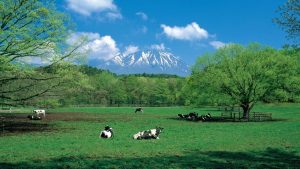
As if the beef industry didn’t already have a bad rap, Brazil’s farmers have reportedly set the Amazon on fire to create more grazing land for the country’s booming beef industry. They are part of a global stampede to meet demand in developing markets—even as ruminant livestock, with cattle at the top of the list, take the heat for agriculture’s nearly 25 percent share of annual greenhouse gas (GHG) emissions worldwide.
Emissions related to agriculture are a primary cause of the current climate crisis—and, as major consumers of beef, Americans carry a large share of the blame. Although the American diet has shifted away from beef toward chicken, we still eat four times as much beef per capita, on average, as the rest of the world.
The solution seems apparent: We should eat less meat. Order the beefless burger and you can save the planet, eliminate cruelty to animals and improve your health.
But a rising chorus of farming advocates says that notion gets it wrong, or at best only partly right.
“The simplified public health message is dangerous,” says Andrew Gunther, executive director of A Greener World, a sustainable livestock farming organization. “If we thought the soil, air and water could be fixed by a single solution, we’d advocate for that.”
Ariel Greenwood, who ranches in Montana and New Mexico, rejects the eat-less-meat message as short-sighted and misleading. “There are many, many ways to raise meat, and dismissing all meat as being destructive is asinine because it ignores the significant variation in production methods and ecosystems in which meat can be produced,” says Greenwood, who is also co-owner of Grass Nomads LLC, a company that helps clients sustainably manage their grasslands.
“My strongest objection to environmental and public health advocates using the slogan ‘eat less meat’ is that it is extremely alienating to farmers and ranchers,” wrote Nicolette Hahn Niman, the well-known vegetarian rancher from BN Ranch, in response to my inquiry. “We need far more intelligent conversations about climate change’s connection to food, agriculture and health.” Read more
FAD82438-36F8-422D-935D-A7149D30C2C1.jpeg